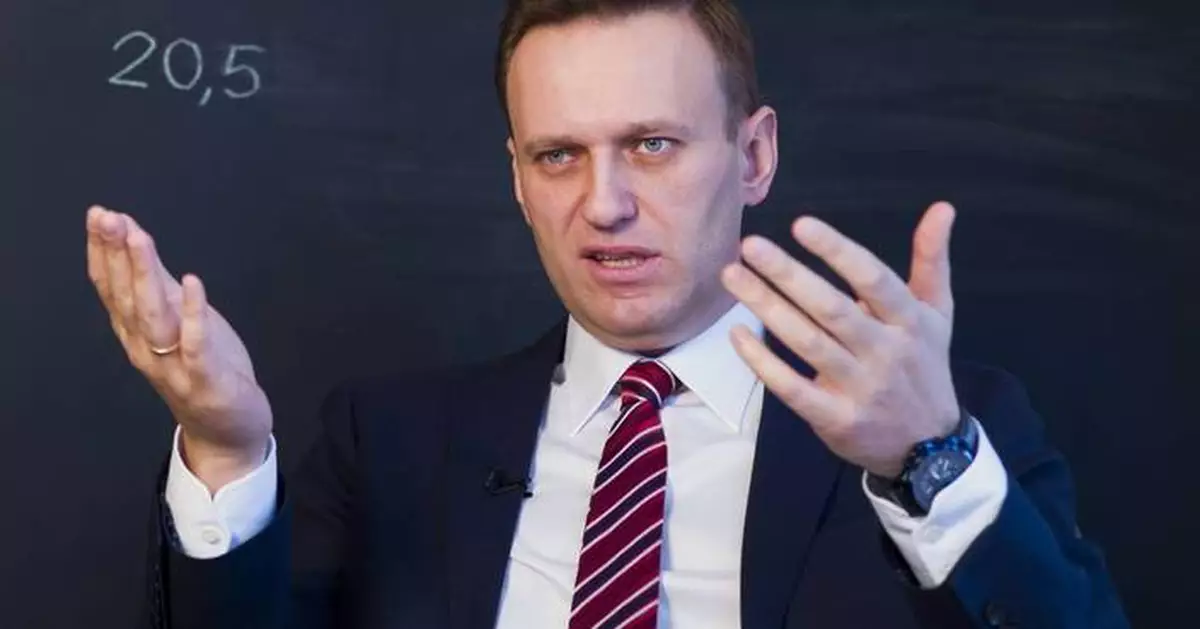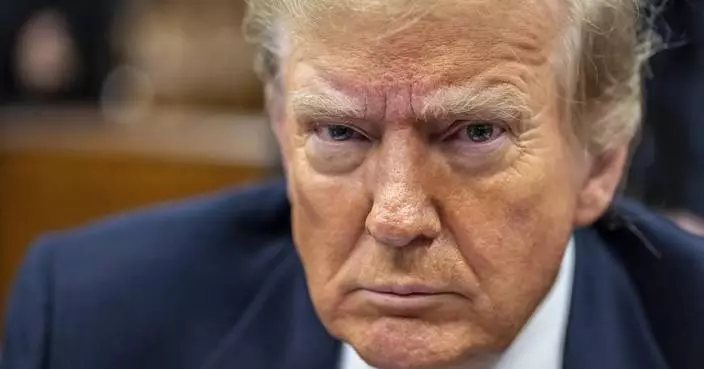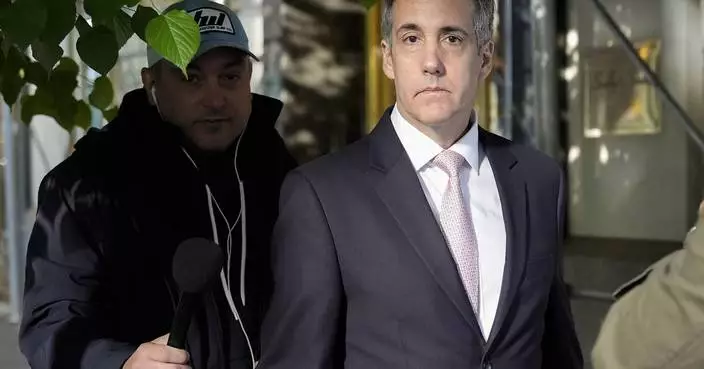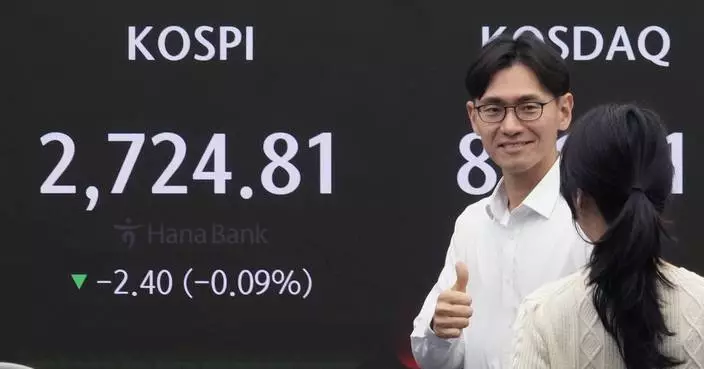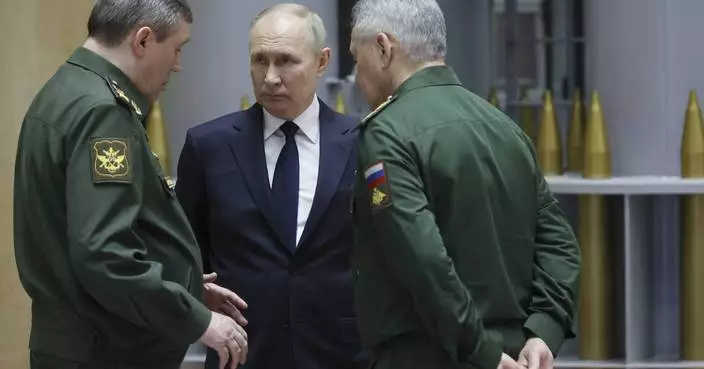WASHINGTON (AP) — U.S. intelligence officials have determined that Russian President Vladimir Putin likely didn’t order the death of imprisoned opposition leader Alexei Navalny in February, according to an official familiar with the determination.
While U.S. officials believe Putin was ultimately responsible for the death of Navalny, who endured brutal conditions during his confinement, the intelligence community has found “no smoking gun” that Putin was aware of the timing of Navalny's death — which came soon before the Russian president's reelection — or directly ordered it, according to the official.
The official spoke on the condition of anonymity to discuss the sensitive matter.
Soon after Navalny’s death, U.S. President Joe Biden said Putin was ultimately responsible but did not accuse the Russian president of directly ordering it.
At the time, Biden said the U.S. did not know exactly what had happened to Navalny but that “there is no doubt” that his death “was the consequence of something that Putin and his thugs did.”
Navalny, 47, Russia’s best-known opposition politician and Putin’s most persistent foe, died Feb. 16 in a remote penal colony above the Arctic Circle while serving a 19-year sentence on extremism charges that he rejected as politically motivated.
He had been behind bars since January 2021 after returning to Russia from Germany, where he had been recovering from nerve-agent poisoning that he blamed on the Kremlin.
Russian officials have said only that Navalny died of natural causes and have vehemently denied involvement both in the poisoning and in his death.
In March, a month after Navalny’s death, Putin won a landslide reelection for a fifth term, an outcome that was never in doubt.
The Wall Street Journal first reported about the U.S. intelligence determination.
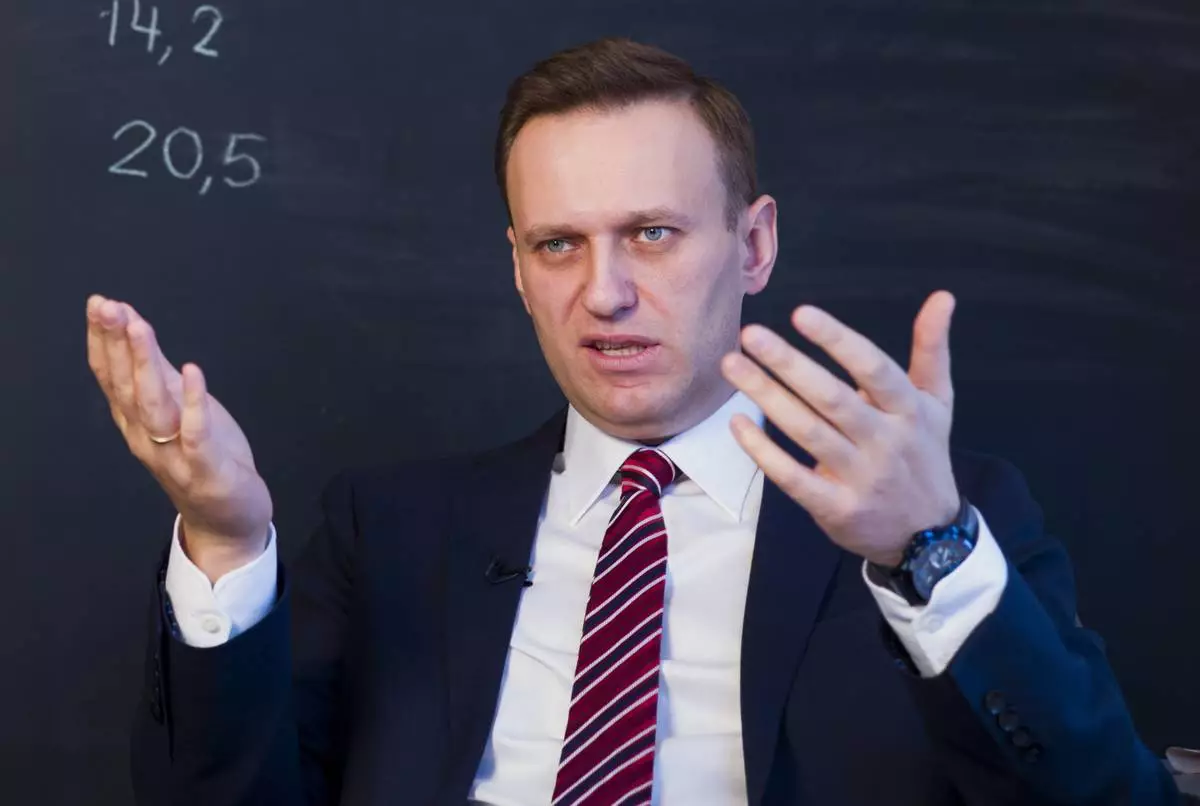
FILE - Russian opposition politician Alexei Navalny gestures while speaking during his interview to the Associated Press in Moscow, Russia on Dec. 18, 2017. U.S. intelligence officials have determined that Russian President Vladimir Putin likely didn't order the death of Navalny, the imprisoned opposition leader, in February of 2024. An official says the U.S. intelligence community has found "no smoking gun" that Putin was aware of the timing of Navalny's death or directly ordered it. (AP Photo/Alexander Zemlianichenko, File)
TBILISI, Georgia (AP) — The Georgian parliament on Tuesday approved in the third and final reading a divisive bill that sparked weeks of mass protests, with critics seeing it as a threat to democratic freedoms and the country’s aspirations to join the European Union.
The bill requires media and nongovernmental organizations and other nonprofits to register as “pursuing the interests of a foreign power” if they receive more than 20% of their funding from abroad.
The government says the bill is necessary to stem what it deems as harmful foreign influence over the country’s politics and to prevent unspecified foreign actors from trying to destabilize it.
The opposition has denounced the bill as “the Russian law,” because Moscow uses similar legislation to crack down on independent news media, nonprofits and activists critical of the Kremlin.
Mass protests against the law in recent weeks have swept the South Caucasus nation of 3.7 million.
European Council President Charles Michel on Tuesday spoke of Georgia in Copenhagen, at a conference on democracy, and said that “if they want to join the EU, they have to respect the fundamental principles of the rule of law and the democratic principles.”
The bill is nearly identical to one that the governing Georgian Dream party was pressured to withdraw last year after street protests. Renewed demonstrations have rocked Georgia for weeks, with demonstrators scuffling with police, who used tear gas and water cannons to disperse the crowds.
Georgian President Salome Zourabichvili, who is increasingly at odds with the governing party, has vowed to veto the law, but Georgian Dream has a majority sufficient to override a presidential veto.
As the lawmakers began debating the bill on Tuesday, a large crowd of demonstrators gathered in front of the parliament to protest once again, with a heavy presence of riot police at the site. Over the weekend, thousands poured into the streets of the Georgian capital Tbilisi, and many stayed in front of the parliament until Monday morning.
Inside the parliament, the debate was interrupted by a brawl. Georgian Dream MP Dimitry Samkharadze was seen charging toward Levan Khabeishvili, the chairman of main opposition party United National Movement, after Khabeishvili accused him of organizing mobs to beat up opposition supporters.
In recent days, several protesters and opposition members have been beaten up. The opposition linked the incidents to the protests.
Another Georgian Dream lawmaker, Archil Talakvadze, accused in his speech on Tuesday “the radical and anti-national political opposition united by political vendetta” of using the protests for their own political purpose and “hoping for events to take a radical turn.”
“But nothing and nobody can stop the development of our country,” Talakvadze said.
Ana Tsitlidze, a member of the United National Movement, said the protests showed how unified Georgia was “in fighting for its European future,” adding that “today, saying no to the Russian law equals saying no to the Russian regime.”
After the debate, 84 lawmakers out of 116 attending Tuesday's session voted in favor of the law, and 30 voted against. It will now be sent to Zourabichvili, the president, and she has 14 days to either veto or approve it.

Demonstrators rest in a street near the Parliament building during an opposition protest against "the Russian law" in the center of Tbilisi, Georgia, on Monday, May 13, 2024. Daily protests are continuing against a proposed bill that critics say would stifle media freedom and obstruct the country's bid to join the European Union. (AP Photo/Zurab Tsertsvadze)

A demonstrator wears a national flag as he argues with the police that blocked the road towards the Parliament building during an opposition protest against "the Russian law" in the center of Tbilisi, Georgia, on Monday, May 13, 2024. Daily protests are continuing against a proposed bill that critics say would stifle media freedom and obstruct the country's bid to join the European Union. (AP Photo/Shakh Aivazov)

Two demonstrators with draped Georgian national and EU flags walk towards the Parliament building during an opposition protest against "the Russian law" in the center of Tbilisi, Georgia, on Monday, May 13, 2024. Daily protests are continuing against a proposed bill that critics say would stifle media freedom and obstruct the country's bid to join the European Union. (AP Photo/Shakh Aivazov)

A demonstrator speaks to the police that blocked the road towards the Parliament building during an opposition protest against "the Russian law" in the center of Tbilisi, Georgia, on Monday, May 13, 2024. Daily protests are continuing against a proposed bill that critics say would stifle media freedom and obstruct the country's bid to join the European Union. (AP Photo/Shakh Aivazov)

Demonstrators with draped Georgian national flags look through a closed gate of the Parliament building during an opposition protest against "the Russian law" in the center of Tbilisi, Georgia, on Monday, May 13, 2024. Georgia's parliament green-lit a final vote on a proposed law that critics see as a threat to media freedom and the country's aspirations to join the European Union, after police dispersed the latest protests against it over the weekend. (AP Photo/Shakh Aivazov)

A demonstrator wears a national flag as she argues with the police that blocked the road towards the Parliament building during an opposition protest against "the Russian law" in the center of Tbilisi, Georgia, on Monday, May 13, 2024. Daily protests are continuing against a proposed bill that critics say would stifle media freedom and obstruct the country's bid to join the European Union. (AP Photo/Shakh Aivazov)



